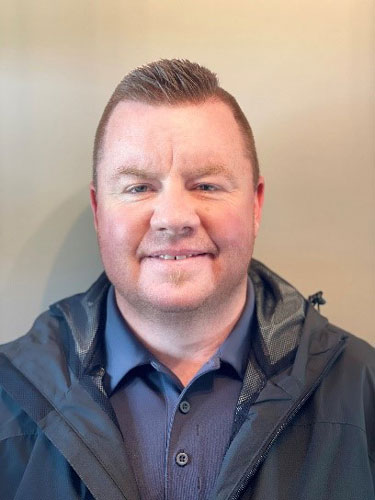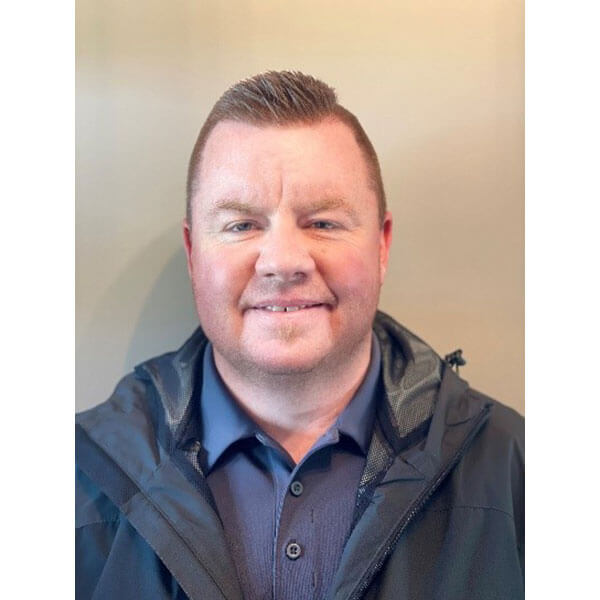
What was your initial reaction when you first learned about CSV’s decision to introduce the Buddy Up program?
So, all the way along working with CSV, one of the biggest drivers that has kept me here so long has been their kind of focus on mental health and the health of their employees. This is just another program that kind of emphasizes how strongly they feel about their employees’ health — and it’s physical health as well as mental health. And this problem that we’re looking at trying to help with is so prominent in the construction area that, you know, I’m just excited to be part of it, I guess. So, yeah, it’s really amazing.
Why did you decide to pursue ASIST level training and what was the experience like for you?
So, in the last five years I’ve really tried to focus on mental health. I’ve had a lot of different kinds of experiences in the last little while with mental health, and I can’t really explain how underfunded and undereducated people are about it. And I think any kind of education to increase and normalize this stigma is in everybody’s best interests.
[And what was the ASIST training like for you?]
It was eye-opening, you know. It’s kind of real-world situations, and you’re put in situations that you’ve never really thought about. And, you know, you’re looking at it from the different perspectives and it really gives you a different set of perspectives to look at everything. And it was informative, it was deep as well. Like, some of these topics aren’t easily discussed and they’re pretty big moments. So, it was a lot.
Do you think there’s still a stigma associated with mental health and if so, what do you think is driving this stigma?
I feel like people see mental health as a sign of weakness. Like when we were involved with that mental health app and that NHL player, he just kept saying “all these NHL teams, they have every therapist and psychologist that they can afford to buy and be on staff. But if you think that I’m gonna get up in front of all my teammates, and go see them,” he said, it would never happen. So, I always seem to go back to that one [story]. It stands with me.
What would you say to someone who is feeling skeptical about the program?
I know that there isn’t anybody out there that can say that they haven’t been affected somehow by mental health. And you know, that comes in multiple different forms, and I think if you’re skeptical about helping people and taking courses to better yourself, like you got to just come in with an open mind and an open attitude and give it a chance. And you never know, I guess, who might need help one day. So, having that in your back pocket and being faced with a situation that you don’t plan on, it’s a tool- you know, helping somebody is a tool that is priceless, really.
What kind of impact do you hope this program will have on CSV’s Albright construction team?
I just would really like to bring awareness to mental health and suicide awareness. You know, this Albright team is going to be a strong group of individuals that are performing day in, and day out, long hours and you know, it’s a strenuous job and it’s in conditions that, you know, people can be away from their homes and their families. But there’s help out there and having people to lean on and also being able to identify certain situations where people might be needing help is critical. We want to be a positive impact on everybody’s lives that are involved with this project, and this is just one kind of way of ensuring that happens.
How is this program changing the way you think about mental health and suicide prevention?
Even since I’ve taken the training, you start to notice different things more and you look at them differently, through a more compassionate lens as well. I feel like the education that I learned from taking the course has given me a different perspective. And I really feel strongly about, you don’t know what every person is going through at that moment. And this gives you the tools to kind of see that there’s problems and gives you the tools to kind of start talking with these people in a safe manner.
How would you feel if someone opened up to you about their mental health before you went through the training, then after the training?
Well, first of all, it’s going to be kind of a thing where it’s nice that that person feels comfortable enough to come talk to anybody to begin with. Because that means our message is getting out, right? And you know, at first, before I did the training, I knew I didn’t have the tools. I didn’t know what I would do if somebody actually did come and talk to me, and say they had a problem. And now just having those skills that I’ve learned, I feel comfortable that we’d be able to take care of them and get them where they need to be to make sure that they were safe.
What do you wish more people knew about mental health?
Well, the biggest thing I think, and it’s kind of cliché, but asking for help isn’t a sign of weakness. That’s the biggest thing. And this is a tough industry to be in, you don’t want to show any weakness and all that, but I just would really love to get to the point where talking about mental health was normalized.
Everybody’s been affected by it, one way or another over their lives. The only way to get the most people the help they need is if they feel safe to talk about it.

